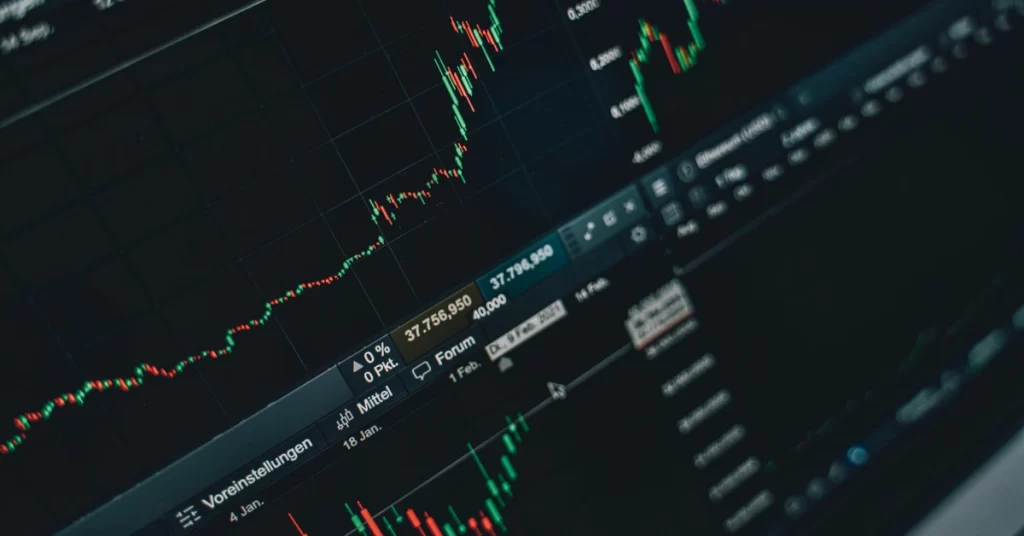
The post What is Spread in Cryptocurrency Trading: A Detail Guide for Traders appeared first on Coinpedia Fintech News
Cryptocurrency trading has gained immense popularity in recent years, attracting traders from all walks of life. One critical aspect of trading that every trader must grasp is the concept of spreads. In this comprehensive guide, we will explore what spreads are in cryptocurrency trading, how they affect your trading experience, and provide valuable insights to help you make informed trading decisions. Whether you are a novice trader or an experienced investor, understanding spreads is crucial for maximizing your profits and minimizing risks.
What are Spreads?
In cryptocurrency trading, a spread refers to the difference between the bid price (the highest price buyers are willing to pay) and the ask price (the lowest price sellers are willing to accept) for a particular cryptocurrency pair. This difference is essentially the cost of trading and is typically expressed in pips or percentage terms. Spreads play a vital role in determining the overall transaction cost, liquidity, and potential profitability of a trade.
How Spreads Work in Cryptocurrency Trading?
When you place a trade in the cryptocurrency market, you must buy at the ask price and sell at the bid price. The spread represents the price you pay to execute the trade instantly. For example, if the bid price for Bitcoin is $40,000 and the ask price is $40,010, the spread would be $10 or 10 pips. To enter a long trade, you would need the market price to increase by at least the spread value before you can break even. Researching and staying updated on market news, economic events, and company-specific developments can be beneficial for spread betting decisions.
Factors Affecting Spreads in Cryptocurrency Trading
Several factors influence spreads in cryptocurrency trading. These include market volatility, liquidity, trading volume, and the exchange you use. High volatility often leads to wider spreads, as it reflects the increased risk and uncertainty in the market. Similarly, low liquidity and trading volume can result in wider spreads due to the scarcity of buyers and sellers. Additionally, different exchanges may have varying spreads due to differences in order book depth, trading fees, and market competition.
Different Types of Spreads in Cryptocurrency Trading
There are primarily two types of spreads in cryptocurrency trading: fixed spreads and variable spreads. Fixed spreads remain constant, regardless of market conditions, providing traders with predictable transaction costs. On the other hand, variable spreads fluctuate based on market volatility and liquidity, offering more flexibility but potentially higher costs during volatile periods.
Tips to Optimize Trading Strategies Using Spreads
- Research and choose a reputable exchange with competitive spreads to ensure favorable trading conditions.
- Understand the correlation between spreads and liquidity to anticipate potential impact on trading costs.
- Consider the time of day and trading sessions, as spreads can vary based on market activity.
- Utilize limit orders to control the price at which you enter or exit trades and minimize costs.
- Keep an eye on economic news and events that can trigger market volatility, impacting spreads.
- Regularly review and compare spreads across different exchanges to identify the most cost-effective options.
Conclusion
Spreads play a crucial role in cryptocurrency trading, affecting your transaction costs and overall profitability. By understanding spreads and their dynamics, traders can make informed decisions, optimize their strategies, and mitigate risks. Stay updated with market trends, choose reliable exchanges, and apply effective trading techniques to ensure you maximize your gains in the exciting world of cryptocurrency trading.
Remember, thorough research, practice, and continuous learning are key to becoming a successful cryptocurrency trader. Happy trading!
| Disclaimer: This is a guest post. Coinpedia does not endorse or is responsible for any content, accuracy, quality, advertising, products, or other materials on this page. The image used in this article is for informational purposes only and is provided to us by a third party. Coinpedia should not be held responsible for image copyright issues. Contact us if you have any issues or concerns. Readers should do their own research before taking any actions related to the company. |

 2 years ago
111
2 years ago
111














 English (US) ·
English (US) ·